The ultimate purpose of the Christian education is to make a disciple of Christ.
The Bible has given that authority only to church and home. Therefore, the Christian education must be carried out by biblically structured churches and Christian homes. We effort to educate students to become “Truly God’s People.” Through using the curriculums deeply rooted in a biblical worldview, we provide an atmosphere for students to learn to glorify God, be grateful for their salvation, and come to full realization of their tasks.
The Bible has given that authority only to church and home. Therefore, the Christian education must be carried out by biblically structured churches and Christian homes. We effort to educate students to become “Truly God’s People.” Through using the curriculums deeply rooted in a biblical worldview, we provide an atmosphere for students to learn to glorify God, be grateful for their salvation, and come to full realization of their tasks.
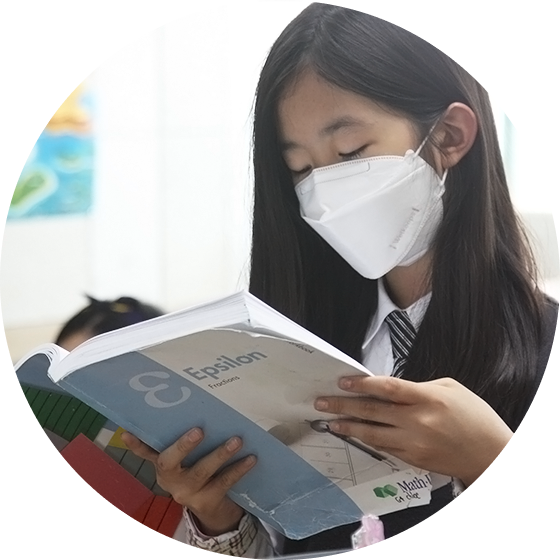
Reading
- Students must practice fundamental pronunciation.
- Students must repeat reading assigned books with a clear expression.
- Students must read books in diverse genres.
- Students must select and comprehend literature in their English level.
- Students must discover the principles from some of the well known Western literatures and apply them into their lives.
- Students must develop reading habits.
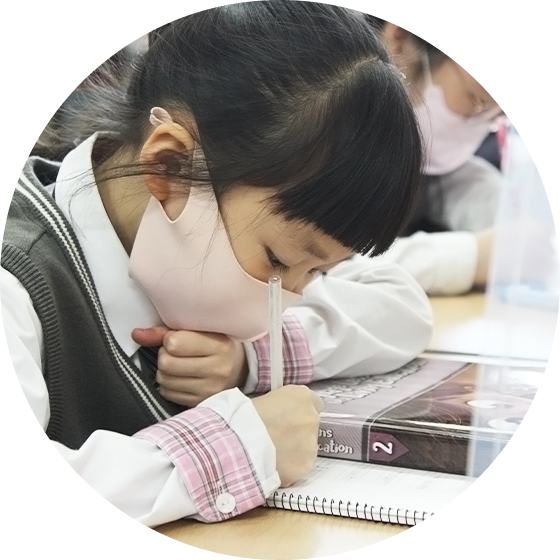
Writing & Grammar
- Learn the basics of writing grammar.
- Learn to choose words accurately and express them in sentences.
- After reading articles of various genres, they select themes and subjects.
- Select texts appropriate to the level of the students, read them sufficiently, and learn the steps of composition.
- Read high-quality books, and apply and develop the writer's thoughts and feelings in life.
- Make it a habit to write in a variety of genres.
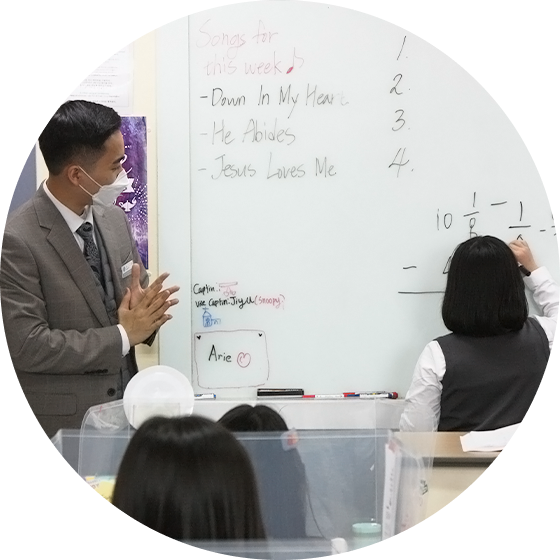
Math
- Students must practice fundamental mathematical principles.
- Students must learn both the practicalities and general principles of math.
- Students should be able to discover God’s unchanging attributes in math.
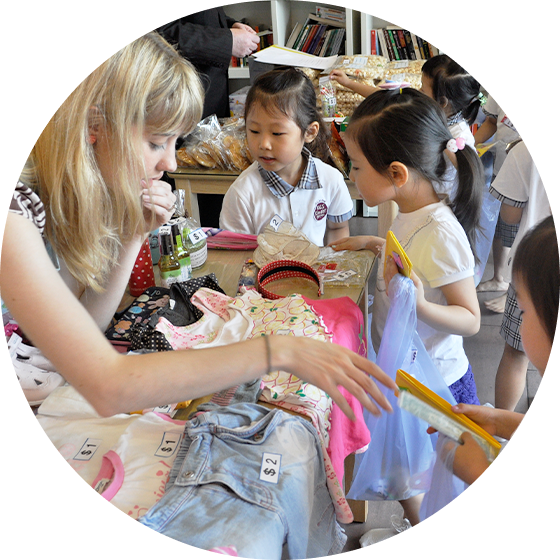
Social Study
- Students learn about the community of God.
- This course focuses on the basis to live in the world that God has made.
- Through this subject, students can embody their life with the theory of the Bible.
- Students will understand the historical view of Christianity.
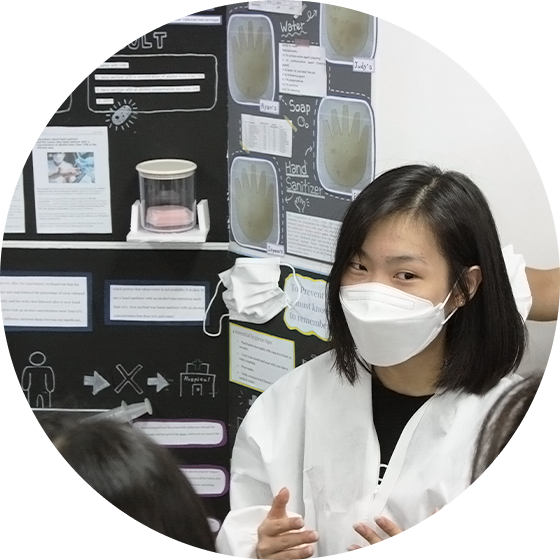
Science
- Make students realize and understand the providence of God who created the universe.
- In order to understand the order of creation, scientific hypotheses are established and experiments are conducted.
- Through this, students learn the essential laws and truths of the universe established by God.
- Science is learning as a means to an end.
- It is understood that science is not an end in itself, but that methods, such as curiosity, experimentation, proof, and research, are tools for uncovering truth and should be viewed as processes.
- Learning takes place through lectures and practice. For example, they learn through various experiments, proofs, and research (eg, invited lecturers, field training, etc.).
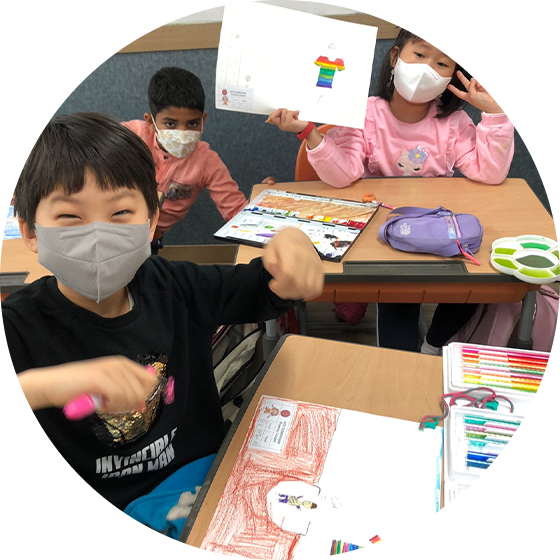
Fine Art
- Develop potential creativity by understanding and exploring God's creativity and originality.
- Students learn to make aesthetic and practical decisions through work, and engage in the construction of their environment.
- Students appreciate various art media and learn sensual experiences, harmony, and various roles and functions through joint works.
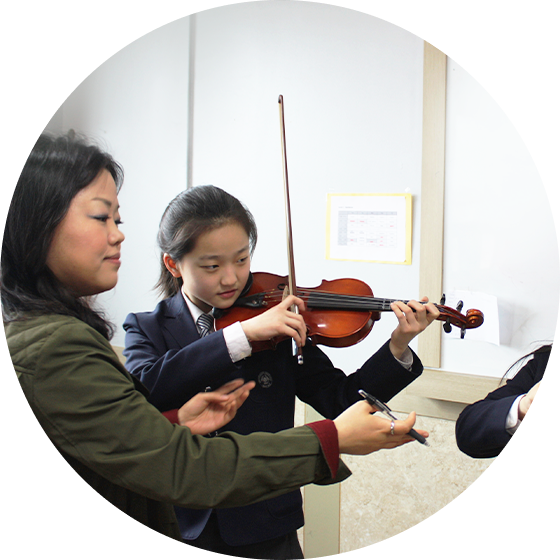
Music
- Students praise God regularly, rightly, joyfully.
- Students learn to play musical instruments and vocalize.
- Based on the Bible, we study various classical music, hymns, and modern music.
- Students receive tutoring to improve their playing skills.
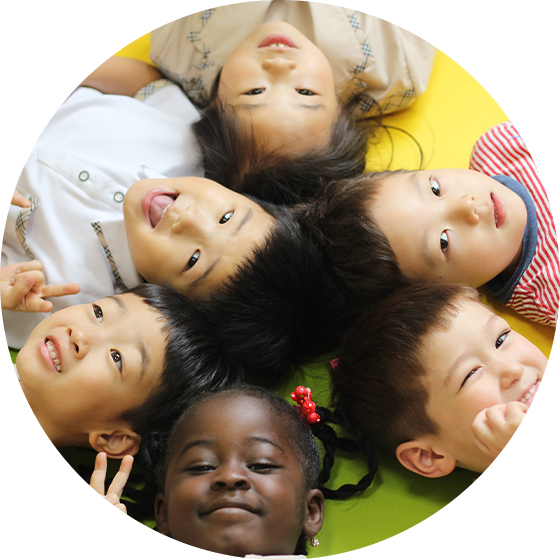
Korean Language
- Students are trained to speak, listen, read and write correctly.
- Establish a right view of the country through language.
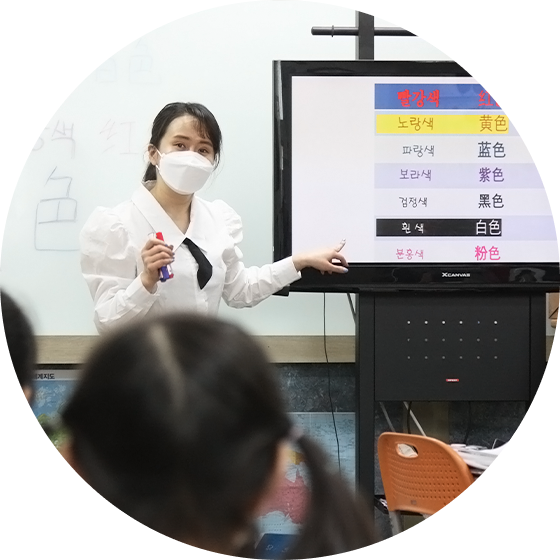
Chinese Language
- Basic training in speaking, listening, readin,g and writing correctly.
- Establish a right view of the country through language.




















